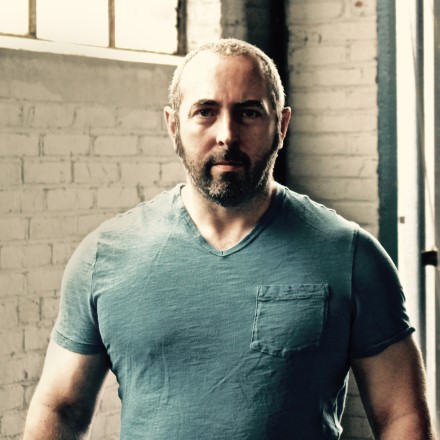I remember a joke I was once told. Not a good one but it makes a good point. A man is watching a group of runners taking part in a road race, when a man comes up to him and says, “Why are they running?” he responds by saying, “Well, the person who comes in first gets ten thousand dollars”, to which the other replies, “So why are the others running?”
Winning, success, failing and failure can be confusing concepts for us to get our heads around. These were things that I struggled a lot with in my youth as a competitive Judoka, who was good, but ultimately not good enough to make it as a professional athlete, and are still things that at times, get me confused, depressed, angry and every other emotion under the Sun. What my rational self knows, although my emotional self often finds it hard to accept, is that failing is not only natural but productive and that the process of failing, does not equate to seeing yourself as a failure.
Judo is one of the most unforgiving arts/sports on the planet when you first start out; making good throws during randori (“play” sparring), is the exception rather than the rule – however when you get the odd occasion when you make a good, clean throw it is exhilarating. When you take up a martial art such as Judo, you have to accept, that you are going to fail at most of your attempts, and keep going despite this. I have great respect for the true, genuine culture of BJJ, where “tapping out”, is not seen as failing, but as an integral part of the learning process – when I used to train BJJ, you could tell the individuals who would not stick at it, because they didn’t understand this, and if submitted, saw it as failing rather than learning. Such individuals see failing, as equating to them being a failure – something that they can’t accept and need to run away from.
I see people’s fear of failing in class all the time; that somehow it will make them appear less in both theirs and the instructor’s eyes – I especially see it when a “higher” belt is practicing with a “lower” belt; ultimately this fear of failing, causes them to fail, as they put effort into all the areas they shouldn’t put effort into, and forget the purpose of the activity they’re engaging in. Fear of failing, also keeps people in their comfort zone, and stops them trying new things, or it may keep them from giving up that which isn’t working to try something different instead e.g. I have seen people in groundwork class, doggedly holding on to a control position, which is obvious that they’ll soon lose; failing to hold on to this position, and being prepared to move on to another position, is about learning how to handle failure and move on, rather than dwell on it – that’s learning rather than failing. Persistence, is really only persistence, if you are learning from it, otherwise it’s just stubbornness.
To accept that failing is productive, is to put your ego in check and accept that it is part of the learning process. In the martial arts, and self-defense, it is also about recognizing that skills and attributes that you thought may have been relevant, may not. I remember many “big” guys starting Judo, who were strong and well-muscled, thinking that throwing was similar to lifting, and that their strength would be to their advantage. They would progress quickly through the lower belts, and then stall at the intermediate ones. Because they used their strength to break balance, or simply didn’t break a person’s balance but over powered people instead etc. they’d failed to learn how to properly break a person’s balance using movement and technique. Now they were fighting more skilled Judoka, they found methods didn’t work, and instead of taking the time to go back to basics and relearn, most gave up and left. There are proper ways to do things, and more often than not, they involve failing; substituting these methods just to get something to work i.e. not wanting to fail, will ultimately halt your progress.
Krav Maga is perhaps one of the martial arts, which is most guilty of not recognizing or admitting that failing is a positive process. It prides itself on the fact that it is, “simple and easy” to learn, without saying that although the techniques are uncomplicated (rather than simple), being able to pull them off is a real-life confrontation is far from easy. Because of this instructors shy away from putting their students in a position where they fail, because in their eyes they risk students believing that what they’ve been taught doesn’t work. It’s one of the reasons that I believe that many instructors spend so much time and focus on two-handed chokes, practicing them from all conceivable angles etc. Two-handed chokes are possibly the most unlikely attacks, that anyone will ever face, however they are easy to deal with, and nobody in a class room setting is likely to “fail” at them. Compare this to a push that takes your balance, followed by a swinging punch (a much more likely scenario), which is a much harder attack to deal with, as the individual will be disorientated, surprised etc. Increase the difficulty, by having a student stand with their eyes closed, and be pushed from any direction and you’ll see people fail to make an adequate defense and response. Keep doing it, practicing it, and they’ll learn – but they’ll fail first.
Training should mean learning, and learning should result in development, and development is built on failing; it’s a process. The sooner we allow ourselves to fail, and stop revising these failures to in fact be something else, the sooner we will start to take the lessons, apply them and develop. The sooner this lesson is learnt the better. We may not be the guy who wins the race we think we're taking part in. That's not important, the race we need to win is our race, the one that has our goals and tarhets, and we must be honest participants in it, recognizing when we don't take first or even second place, because through failure comes success.
Share:

Gershon Ben Keren
2.8K FollowersGershon Ben Keren, is a criminologist, security consultant and Krav Maga Instructor (5th Degree Black Belt) who completed his instructor training in Israel. He has written three books on Krav Maga and was a 2010 inductee into the Museum of Israeli Martial Arts.
Click here to learn more.
